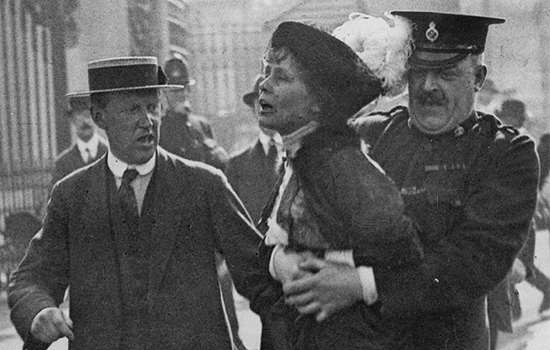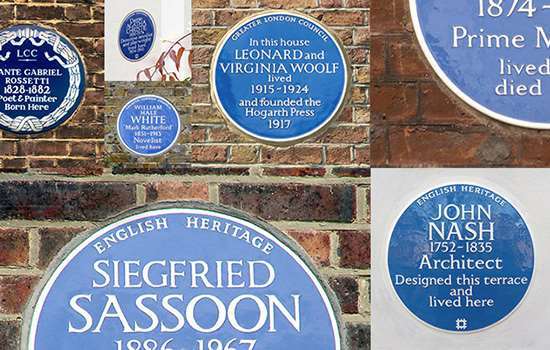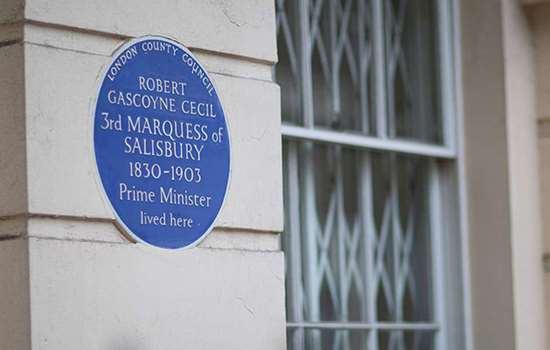G.P.O. FILM UNIT
Plaque erected in 2000 by English Heritage at 47 Bennett Park, Blackheath, London, SE3 9RA, London Borough of Greenwich
All images © English Heritage
Category
Historical Sites, Theatre and Film
Inscription
G.P.O. FILM UNIT later Crown Film Unit Pioneers of documentary film making had their studios here 1933-1943
Material
Ceramic
The General Post Office (GPO) Film Unit, later known as the Crown Film Unit, was at the forefront of early documentary filmmaking. It is commemorated with a blue plaque at 47 Bennett Park, where its studios operated from 1933-43.
The GPO Film Unit at Blackheath produced acclaimed British public service films including Coal Face (1935) and Night Mail (1936). The latter, perhaps the unit’s most famous production, featured a score by Benjamin Britten and was narrated in verse by WH Auden.
John Grierson, who led the unit, was said to have coined the term ‘documentary’. In addition to documentaries, the film unit produced instructional films for Post Office workers operating equipment at the cutting edge of technology, such as the telephone network. As part of the public relations department, it also promoted new technologies to the public via films such as the musical fantasy The Fairy of the Phone (1936).
Bennett Park
The redbrick studios at 47 (formerly 45) Bennett Park were originally established as the Blackheath Art Club in 1885. The GPO Film Unit sound editing department was also based there from 1933 and its accomplishment was praised at a time when “talking pictures” were in their infancy.
The unit made its first use of recorded speech in 6.30 Collection (1934) and made early experiments with sound montage. Among those who worked there were the director Humphrey Jennings and the writer Laurie Lee.
When war broke out, the GPO Film Unit became the Crown Film Unit and produced documentaries aiming to raise morale and fight fascism. Films edited at Blackheath included Listen to Britain (1942) and Fires Were Started (1943).
The unit moved to Beaconsfield towards the end of the Second World War and was disbanded in 1952.
Further reading
- James G. Mansell and Scott Anthony, The Projection of Britain: A History of the GPO Film Unit (2019)
- The GPO Film Unit Collection, BFI Player


